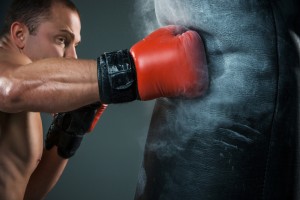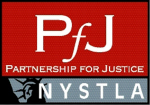 This week, we are continuing our series on how lawyers can get the most out of mediations. Last week, we wrote about the importance of getting all of the right people in the room. Showing up is the important place to start, but once you’re there, you better be ready: trial ready.
This week, we are continuing our series on how lawyers can get the most out of mediations. Last week, we wrote about the importance of getting all of the right people in the room. Showing up is the important place to start, but once you’re there, you better be ready: trial ready.
What does trial ready even mean?
To start with, it means that you have already addressed all essential motion practice related to the matter in hand. If the case warrants a shot at summary judgment on liability beforehand without going to a jury, then you should have already fully exhausted all avenues of motion practice before walking into the mediation (i.e. Labor Law 240). If you go to mediation too early, before you’ve taken that step, you’ve just handed a sword to the defense to argue that they can defeat a motion for summary judgment. It can,also give them a psychological edge in thinking that you are not standing fully behind your case and you’re willing to take a discount.
Trial ready also means you’re walking into mediation ready to present your case, having fully prepared your arguments and evidence as you would before heading into court for the first day of trial. Some lawyers come equipped with a full trial binder and courtroom blow ups, subdivided into sections and categories. Some more tech-savvy lawyers like to show up with their laptops and iPads loaded up with Powerpoint presentations and all the x-rays, expert disclosures, and other key demonstrative evidence. Whether you’re new school or old school, the point is that you come into the room with everything all teed up, so you can walk the mediator through all the essential elements of the case. A lawyer who walks into a mediation session with nothing more than a few bullet points jotted down a yellow piece of paper and a disorganized redwell is doing a disservice to his client, by squandering a real settlement opportunity for want of proper preparation.
We should clarify, though, that a trial binder, blow-ups and visual aides are impressive but also not always necessary. In fact, we’ve worked with some excellent trial attorneys who show that they are trial ready in mediation sessions without a single piece of paper. They prefer to sit down in front of the mediator, defense attorney and adjusters and present all the facts and evidence purely from memory. This can be equally effective because it shows the lawyer’s ultimate ease and confidence with the facts and legal issues. It’s not a matter of bluffing so much as a different way of demonstrating the level of your preparedness.
A final point about preparedness: we think it makes sense to have all of your experts lined up with your 3101(d) expert exchanges in the hands of the defense. Some lawyers we know don’t want to spend the money until they have feel they must. But we think that’s penny-wise and pound-foolish. Nothing can be as effective as putting your money behind your case before mediation in order to demonstrate your commitment and confidence in a case.
In our experience, attending hundreds of mediations over the years, we see coming in prepared as the single most important determinant of success. Preparation, Preparation, Preparation. The more prepared a lawyer is, the better the outcome in mediation is going to be.



